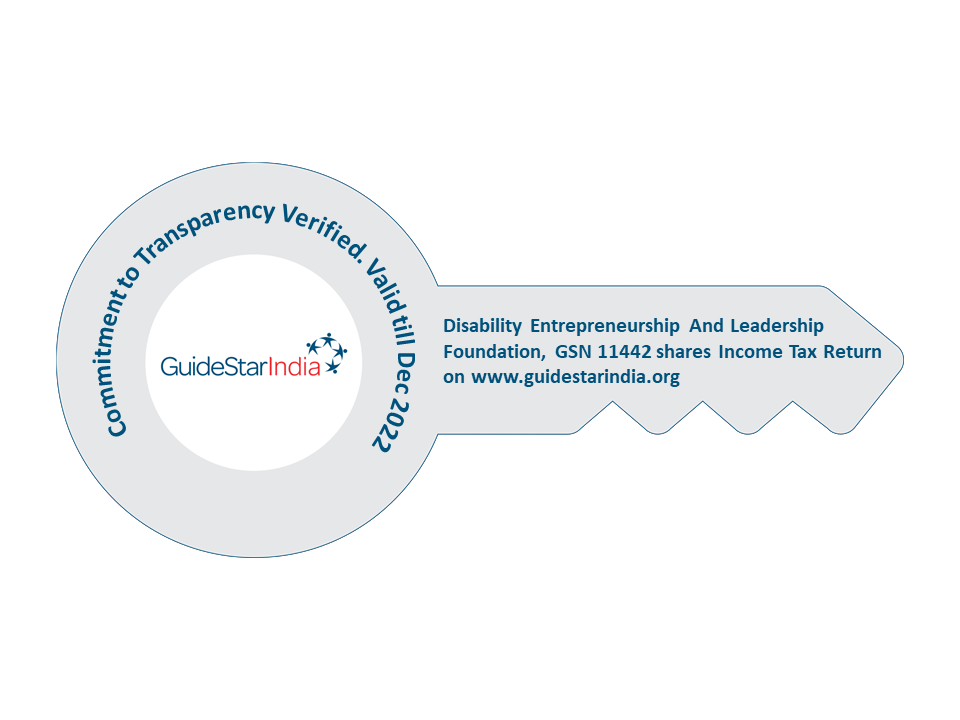Generally persons with disabilities are identified when they are seen using assistive devices such as a white cane, a wheel chair or a hearing aid which helps perform their day to day activities with ease.
But did you know? According to a 2017 study by the Centre for Talent Innovation, among white-collar, college-educated employees, 30 percent have a disability. But only 3.2 percent self-identify as having a disability to their employers. And of all employees with a disability, 62 percent have an invisible disability.
This on the whole can leave a large impact on the person’s wellbeing and the place of work; hence it is important to understand what invisible disabilities are and how employers can help persons suffering from invisible disabilities at the place of work.
According to the Invisible Disabilities Association, An invisible disability is a physical, mental, or neurological condition that can’t be seen from the outside. But can impact someone’s movements, senses, or activities. That also means many people go through their day-to-day work lives without revealing what disability they may be experiencing or how it impacts them physically, emotionally, and mentally.
In spite of all that they are going through most persons suffering from invisible disabilities choose to remain silent as most people suffer from fear.
Fear of losing their job, or fear of being discriminated at the work place, on the other hand, some people consider it to be a minor part of their lives and hence choose to be ignorant about their disability.
Another reason could be that most persons suffering from invisible disabilities feel that co-workers may refuse to believe that they actually have a disability; after all it is not easy to convince people about something they can’t see.
This problem needs to be seen to so as to help persons with and without invisible disabilities be in power with their co-workers.
To do this, employers could.
- Make employees feel comfortable to disclose their disability:
This can happen only when employees feel that they are working in an inclusive environment. Therefore promoting awareness on the importance of creating an inclusive environment across the place of work should be on the radar. By doing this, people who disclose their disabilities are seen to be regularly happy and contented which makes life much easier for them.
- Provide reasonable accomodation for persons with disabilities if required:
It is most likely that people with disabilities invisible or not can perform their jobs as expected if their basic needs are met.
According to a survey by the Job Accommodation Network (JAN), 58 percent of accommodations cost nothing. And nearly all of the rest involved a one-time cost that averaged only $500. For instance An employee struggling with poor memory due to a learning disability could be helped by providing written instructions to explain their job duties instead of just relying on verbal discussions. A person suffering from a chronic condition may need flexible start time or break time in order to be able to take medication.
- Offer services and support to people with disabilities:
The least an employer can do is to provide the required services and support to employees with disabilities.While this can prove to be beneficial to employees, it can also help co-workers and employers as persons with disabilities do not have to be dependent on the other to perform daily tasks.
(Source: www.understood.org)
Disability Entrepreneurship And Leadership (DEAL) Foundation works across the districts of Gadag and Bengaluru.The main aim of the foundation is to promote sustainable livelihood opportunities for persons with disabilities.
As a part of our work we promote awareness to different organisations, schools, health institutions, and self-help groups we work with on the different types of disabilities both visible and invisible, ways to identify each disability at an early stage so as to provide the necessary assistance for them to lead an independent life.
For specific questions regarding the blog, please write to us at info@deal-foundation.com
To know more about the work we do, please log on to www.deal-foundation.com


 Awarded by Guidestar India
Awarded by Guidestar India